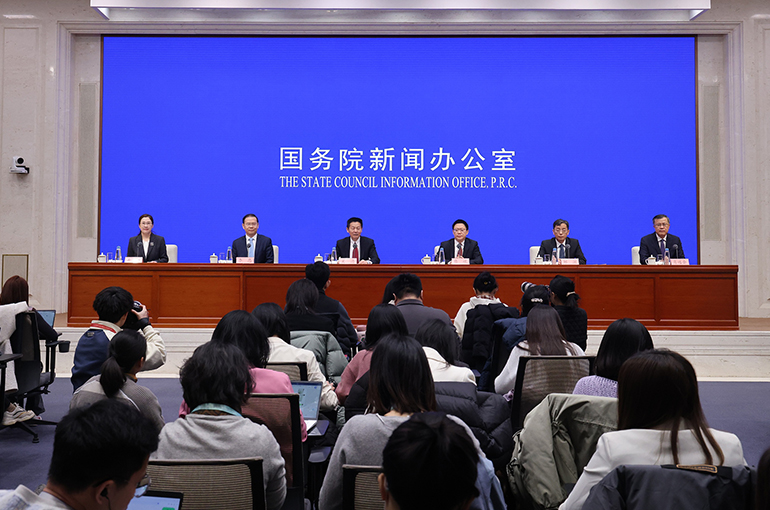 China Guides Mutual Funds and Insurers to Boost Stock Investments
China Guides Mutual Funds and Insurers to Boost Stock Investments(Yicai) Jan. 23 -- China has established new requirements for mutual funds and state-owned insurers to increase their investments in mainland-listed equities to stabilize the underperforming stock markets.
Mutual funds should expand their holdings of mainland-listed equities by at least 10 percent each year for the next three years, Wu Qing, chairman of the China Securities Regulatory Commission, said at a press conference today. Additionally, large state-owned insurance companies must allocate 30 percent of their new premiums to stocks, starting this year, Wu added.
These measures are expected to inject hundreds of billions of yuan in incremental funds into the mainland stock markets annually, the chairman noted.
A-shares briefly rose after the policy update. The Shanghai Composite Index advanced 1 percent to 3,246.51 by the midday break but pared the gains to just 0.5 percent by the close. After earlier upticks, the Shenzhen Component Index closed 0.5 percent lower at 10,176.17, and the ChiNext Index fell 0.4 percent to 2,093.31.
The government is responding to months of bearish stock market sentiment. Six regulators, including the central bank, yesterday released a joint implementation plan to promote the entry of medium-to-long-term capital into the market. The policy push involves commercial insurers, as well as social security and pension funds. The plan proposes extending the assessment cycle of commercial insurers and pension funds to at least three years instead of the current one-year period.
A pension insurance insider said that extending the evaluation cycle will allow insurers and pension funds to transform into "patient capital," adopting a longer-term investment approach while playing a stabilizing role in the market.
Editor: Emmi Laine